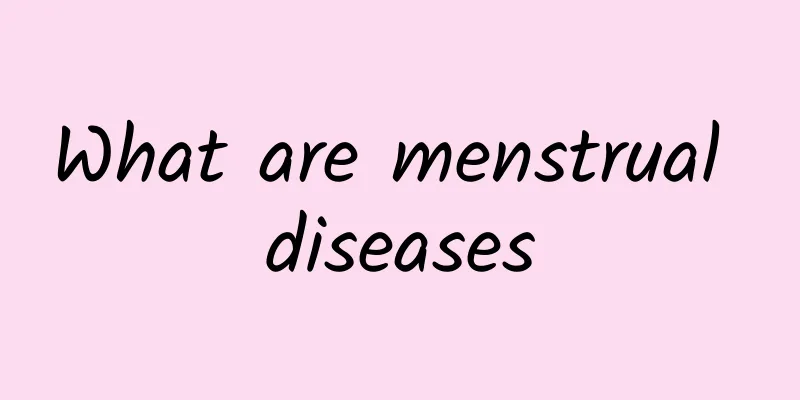New drug for the treatment of adenomyosis

|
Regarding new drugs for the treatment of adenomyosis, it should be made clear that although the medical field is constantly developing, there is currently no new type of drug specifically for adenomyosis. However, among the existing therapeutic drugs, several drugs have been widely used in the treatment of adenomyosis in recent years and have achieved good results, including oral contraceptives, progesterone drugs, gonadotropin-releasing hormone analogs, non-steroidal anti-inflammatory drugs, selective estrogen receptor modulators, etc. The specific analysis is as follows: 1. Oral contraceptives: such as levonorgestrel tablets. These drugs can reduce the production of estrogen by inhibiting ovarian function, thereby alleviating the symptoms of adenomyosis. Oral contraceptives are one of the common treatment options, but their specific use should be based on the patient's specific situation and 2. Progestogen drugs: such as medroxyprogesterone acetate tablets, gestrinone capsules, etc. Progestogens can counteract the effects of estrogen, reduce the growth of the endometrium, and thus relieve symptoms. These drugs play an important role in the treatment of adenomyosis. 3. Gonadotropin-releasing hormone analogs: such as leuprorelin, triptorelin acetate, etc. These drugs can temporarily inhibit ovarian function and reduce estrogen levels in the body, thus being used to treat severe adenomyosis. They have significant effects on relieving dysmenorrhea and reducing menstrual volume. 4. Non-steroidal anti-inflammatory drugs: such as ibuprofen sustained-release capsules, indomethacin sustained-release capsules, diclofenac sodium sustained-release tablets, etc. These drugs have antipyretic, analgesic and anti-inflammatory effects, and can effectively relieve the pain and inflammation caused by adenomyosis. 5. Selective estrogen receptor modulators: such as raloxifene tablets. This type of drug can regulate the effects of estrogen and is used to treat diseases related to estrogen levels, including adenomyosis. They work by affecting the binding of estrogen to receptors. There are many types of drugs for the treatment of adenomyosis, and the mechanisms of action and effects of different drugs vary. When choosing therapeutic drugs, factors such as the patient's specific situation, the severity of symptoms, and fertility requirements should be considered comprehensively, and individualized treatment should be carried out under the guidance of a doctor. At the same time, drug treatment can only play an auxiliary role. For patients with severe symptoms or poor drug treatment effects, other treatment options such as surgical treatment may also need to be considered. |
<<: Will using electric knife to treat cervical erosion affect fertility?
>>: What is the reason for repeated fever after miscarriage?
Recommend
Bartholinitis treatment guide
The Bartholin's gland is the internal reprodu...
Experts explain how women can relieve dysmenorrhea
Dysmenorrhea has been bothering many women, causi...
The most common complications of cervicitis
Cervicitis is a very common disease. When women s...
The harm of irregular menstruation to female friends
During women's menstrual period, irregular me...
How to identify cervicitis from symptoms? What are the folk remedies for cervicitis?
How to identify cervicitis from symptoms? What ar...
Can Bulletproof Coffee for Breakfast Control Blood Sugar and Help Lose Weight? Doctor: Be careful, these situations may ruin your health
You don’t have to drink only milk or soy milk for...
Is vaginal bleeding really a symptom of cervical erosion? Two inside stories about cervical erosion that women need to know
Women will experience some symptoms in their dail...
What is recurrent miscarriage? What doctors say
Many women have a very high chance of miscarriage...
What kind of exercise is suitable for people with uterine fibroids? What kind of exercise is good for people with uterine fibroids?
What kind of exercise is suitable for people with...
Are you a "puff girl" who looks thin but has excessive body fat? Nutritionist: 7 tips to help you lose fat
If you are a puff girl with body fat over 27% and...
Experts explain how to effectively prevent cervical erosion
It is understood that although many female friend...
Will wearing tight pants often cause adnexitis?
Nowadays, adnexitis has always been a headache fo...
Can pregnant women with Bartholinitis be transmitted to the fetus?
Can pregnant women with Bartholinitis transmit it...
How to exercise for uterine prolapse
Uterine prolapse can be improved through pelvic f...
What are the menstrual characteristics of uterine fibroids?
What are the menstrual characteristics of uterine...









